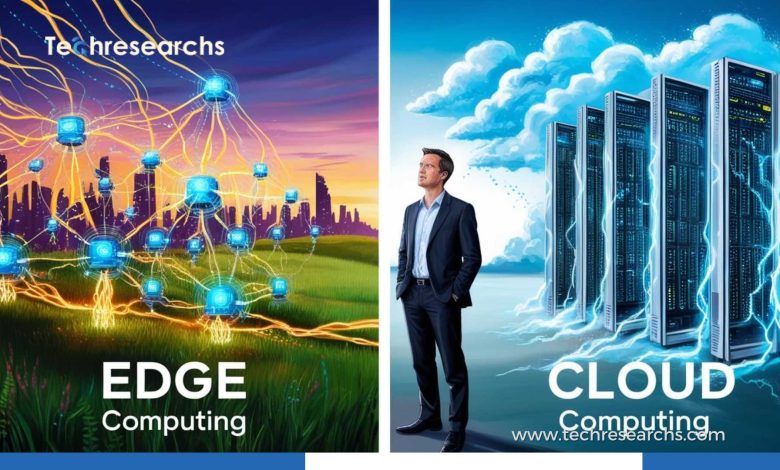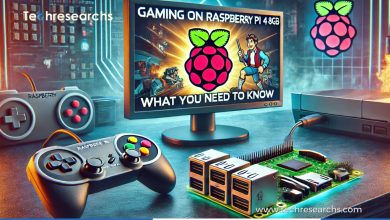Edge vs Cloud Computing: Which One Is the Right Choice for Startups?

In today’s fast-evolving digital landscape, startups must decide how to store, process, and manage data efficiently. Edge vs Cloud Computing are two popular models, each offering unique benefits. But which one is the right choice for startups? This article explores both options, comparing their advantages, limitations, and best use cases.
What Is Edge Computing?
Edge Computing processes data closer to the source rather than relying on a centralized data center. It reduces latency and enhances performance.
Key Benefits of Edge Computing:
- Low Latency: Data is processed in real time, making it ideal for IoT and real-time applications.
- Bandwidth Optimization: Reduces the need to send vast amounts of data to the cloud.
- Improved Security: Localized data processing reduces the risks associated with centralized cloud storage.
What Is Cloud Computing?
Cloud Computing involves storing and processing data in remote data centers accessible via the internet. Companies like AWS, Google Cloud, and Azure dominate this sector.
Key Benefits of Cloud Computing:
- Scalability: Startups can scale up or down based on demand.
- Cost Efficiency: Pay-as-you-go pricing models reduce upfront infrastructure costs.
- Global Access: Teams can access data from anywhere in the world.
Edge vs Cloud Computing: A Detailed Comparison
| Feature | Edge Computing | Cloud Computing |
|---|---|---|
| Latency | Low | Higher |
| Scalability | Limited | High |
| Security | Localized | Centralized |
| Data Processing | Near Source | Remote |
| Cost | Varies | Pay-as-you-go |
Which One Is Best for Startups?
Choosing between Edge vs Cloud Computing depends on a startup’s needs. Here are some key considerations:
- Startups Handling IoT Data: Edge computing is preferable due to lower latency.
- Global Accessibility Needs: Cloud computing is better suited for remote teams.
- Security and Compliance: Edge computing offers more control over sensitive data.
- Cost Considerations: Cloud computing provides flexible and scalable pricing.
Edge vs Cloud Computing in Different Industries
Healthcare
Edge computing improves real-time monitoring in medical devices, while cloud computing supports telemedicine solutions.
E-Commerce
Cloud computing ensures scalability for high-traffic websites, while edge computing enhances customer experience with personalized recommendations.
Manufacturing
Edge computing enables predictive maintenance in industrial equipment, while cloud computing facilitates large-scale data analysis.
Future of Edge and Cloud Computing
The future lies in hybrid models, combining both approaches. Startups may use cloud computing for general storage while deploying edge computing for real-time applications.
Edge vs Cloud Computing is a crucial decision for startups. Both technologies offer unique benefits, and the right choice depends on business needs. Startups should assess scalability, security, latency, and cost before making a decision.
FAQs
1. Is Edge Computing more secure than Cloud Computing?
Edge computing processes data locally, reducing cyberattack risks. However, cloud providers invest heavily in security measures.
2. Can Startups Use Both Edge and Cloud Computing?
Yes, a hybrid approach is common, where edge computing handles real-time data and cloud computing supports long-term storage.
3. Which One Is More Cost-Effective for Startups?
Cloud computing is often more budget-friendly due to its flexible pricing models, whereas edge computing may require higher initial investments.



